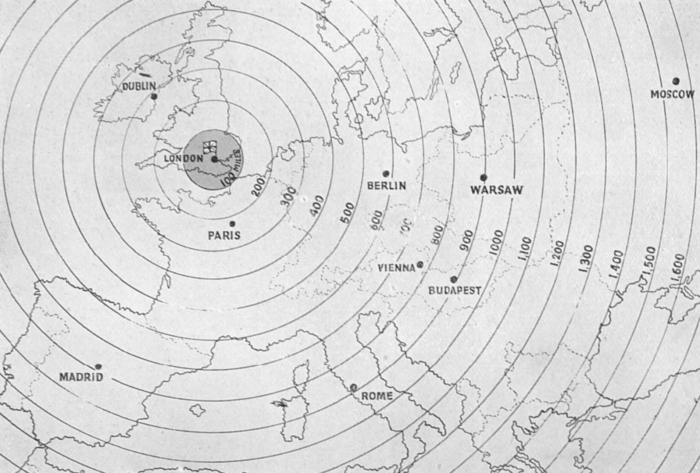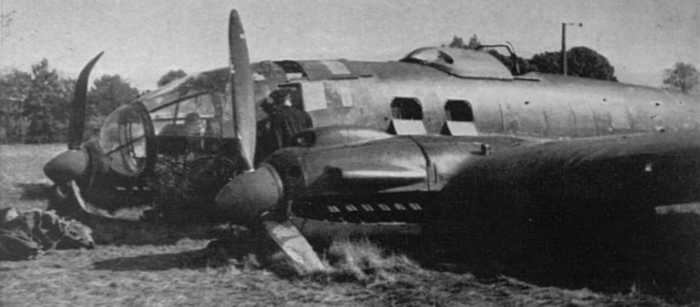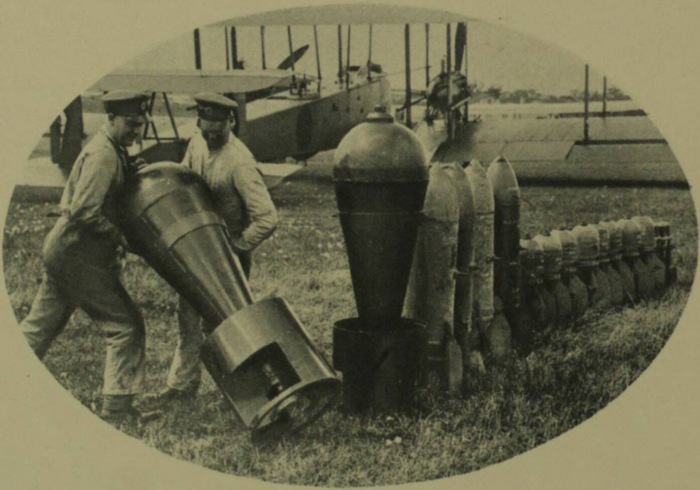I showed in an earlier post that scepticism of Baldwin’s dictum that ‘the bomber will always get through’ begins to appear in the British Newspaper Archive (BNA) in 1937, if only in a very small way. In 1938, the majority opinion still takes it to be axiomatic. For example, town alderman W. A. Miller, attacked the lack of information available about Plymouth City Council air raid precautions (ARP) planning:
‘It is pure pretence to say you can offer any defence against the bomb,’ he said. ‘The bomber will always get through. When the things happen for which these precautions are intended, anarchy will not be in it.’1
W.V. of Belfast began a letter to the editor of the Northern Whig by stating that
‘The bomber will always get through,’ bombs will be dropped, and many people killed despite air raid precautions. Against high explosives no protection is possible.2
In July, George Lansbury, pacifist and former leader of the Labour Party, gave a widely-publicised speech in which he referred to ‘the cold fact attested by military and scientific authorities […] the bomber must always get through’.3
But this kind of discussion drops off later in the year. The phrase ‘the bomber will always get through’ doesn’t appear at all in BNA in September or October, the months when the Sudeten (or Munich) crisis and the threat of a knock-out blow from the air dominated the news.
What of the sceptics? There were a handful in the first few months of the year. For example, the Liverpool Echo criticised the government’s handling of ARP in a leading article by criticising Baldwin:
There are some schemes on paper for the protection of the civilian population, but the ignorance of the public is profound. The Government has not set a good example, and the fatalism of Mr. Baldwin when Premier–‘the bomber will always get through’–had a bad effect. Incidentally the men who have organised the defence of Berlin against air raids do not think bombers in any number will get through their barriers, and they have some reason for this belief.4
A Conservative MP, Wing-Commander John Cecil-Wright, criticised his party’s former leader’s claim as ‘a very unfortunate remark […] made when air defence was not what it is today’:
I venture to suggest that those days have passed and, provided always that we equip ourselves with all correct methods of defence available today, I believe that the bomber will not always get through.5
But by far the most visible scepticism came from Guilty Man Sir Kingsley Wood, the Air Minister. At least nine articles quote a speech made by Wood in London in November in which he stated that
It is perhaps the case that there has been in the past a tendency to overstate the argument that the bomber will always get through and to lay undue stress on the claim that counter-offensive is the only effective means of defence in the air.6
Spoken like the solicitor Wood was, perhaps, but in the aftermath of Munich this was powerful stuff. (If only he’d said this something like this bold before ARP Sunday.) In 1939, everyone lined up to agree with him, beginning with his precessor as Air Minister, Viscount Swinton, who in January told the Yorkshire branch of the Chartered Surveyors’ Institution that:
It may have been pertly true, when Mr Baldwin said it, that ‘the bomber will always get through’; it was entirely untrue today, and became progressively less true month by month. A knock-out blow, he added, would be utterly and wholly impossible in this country today.7
He said much the same thing to the Hull Rotarians in June.8
By now, everyone was piling on poor old Baldwin. In March, a number of papers carried an article by Leonard Mosley, who wrote (from ‘Somewhere in Scotland’) that
Of all the questions that ordinary people ask these days about the defence of Britain, none is more frequently heard than this one: In the event of war will the bombing aeroplanes get through? They ask: ‘If enemy bombers do set out to attack this country, have we yet found out a way to stop them?’ The answer is Yes. In spite of Lord Baldwin’s now famous phrase, it is not a fact that the bombers will always get through. The enemy will be lucky if one in ten of its heavy bombers gets within thirty miles of its objective.9
And if that’s not clear enough, this was the headline in the Aberdeen Press:

In Glasgow, the Daily Record was even harsher:

This was for a review of Air Strategy for Britons, written under the pseudonym Ajax, summed as containing ‘A vigorous denial of the famous statement by Lord Baldwin that ‘the bomber will always get through,’ and a theory that in a war Germany would not waste time bombing London and civilians generally’.10
In August, the Midland Daily Telegraph editorialised that:
Germany obviously does not believe that ‘the bomber will always get through.’ Probably the truth lies somewhere midway between German optimism and Baldwinian pessimism, with the balance swinging gradually favour of the defences. The theory that waves of bombers could procure a ‘lightning victory annihilation‘ already lies side-by-side with the dodo.11
A number of writers now felt free to play around with and invert Baldwin’s words: ‘the bomber will always get hit’, or ‘Some of the bombers will always get through [and] Some of them will get back!’12
The most scathing assessment of Baldwin’s dictum came from a correspondent of the Hastings and St Leonards Observer:
I am happy to be able to reassure your correspondent by stating that Mr Baldwin’s assertion — made in November, 1932 — that there is no defence in modern warfare, is nothing but a pacifist propaganda. The bomber will not always get through.13
‘Britain for the British’ (hmmm) then went on to describe ‘Mr Baldwin’s notorious “appeal-to-youthful-cowardice” speech’ as being ‘obviously made when suffering from war funk hysteria’, a ‘bumbling utterance’ and a ‘dithering ecstasy of self-pity’!14
Set against all this anti-Baldwinianism, there are now very, very few prepared to confess their adherence to the old creed, and even those betrayed doubt, such as the Dundee Evening Telegraph:
The idea that ‘the bomber will always get through’ is not now held so strongly as a little time ago; but it is pretty certain that he will get through sometimes.15
When I began this series, I had expected scepticism of Baldwin’s previously unassailable claim to gain in strength as war approached, because aviation experts had already begun to turn against it. But the sudden near-unanimity in 1939 is still really surprising to me. Indeed, in my book I wrote that
The turn away from the knock-out [blow]16 after 1937 was not complete by the outbreak of war in September 1939. Not only were there those like Charlton who refused to retreat from their beliefs, but there had not been time for the new scepticism to seep outwards [from specialist books] to the wider discourse. The ‘forecasts of future horror, of cities blotted out in an hour’, as Liddell Hart put it, remained in the public consciousness. The knock-out blow theory still retained its power to persuade; but the coming of war changed how it was to be used.17
From this sample, however, it looks like the new scepticism had enough time to not only ‘seep’ into the wider discourse, it had enough time to drown it. I had originally planned to end this series with the start of the war, but now I’m intrigued to see if and how ‘the bomber will always get through’ was used when the bombers were actually trying to get through…
![]() This work is licensed under a Creative Commons Attribution-NonCommercial-NoDerivatives 4.0 International License.
Permissions beyond the scope of this license may be available at http://airminded.org/copyright/.
This work is licensed under a Creative Commons Attribution-NonCommercial-NoDerivatives 4.0 International License.
Permissions beyond the scope of this license may be available at http://airminded.org/copyright/.
- Western Morning News and Daily Gazette (Plymouth), 12 January 1938, 11. Henry Morley Miller, a Conservative, is the only Plymouth alderman named Miller I can find from the period. [↩]
- Northern Whig and Belfast Post, 22 March 1938, 9. [↩]
- Birmingham Gazette, 30 July 1938, 1. [↩]
- Liverpool Echo, 18 January 1938, 6. [↩]
- Birmingham Gazette, 15 February 1938, 9. [↩]
- Londonderry Sentinel, 19 November 1938, 12. [↩]
- Yorkshire Evening Post (Leeds), 28 January 1939, 9. [↩]
- Daily Mail (Hull), 10 June 1939, 7. [↩]
- Aberdeen Press and Journal, 3 March 1939, 6; emphasis in original. [↩]
- Daily Record and Mail (Glasgow), 11 July 1939, 6. See also Brett Holman, The Next War in the Air: Britain’s Fear of the Bomber, 1908-1941 (Abingdon: Routledge, 2016), 78, 213. [↩]
- Midland Daily Telegraph (Coventry), 10 August 1939, 4. [↩]
- Birmingham Post, 2 August 1939, 7; Midland Daily Telegraph (Coventry), 10 August 1939, 4; emphasis in original. [↩]
- Hastings and St Leonards Observer, 19 August 1939, 6. [↩]
- Ibid. [↩]
- Evening Telegraph (Dundee), 18 August 1939, 3. [↩]
- New typo! [↩]
- Holman, The Next War in the Air, 80. [↩]





